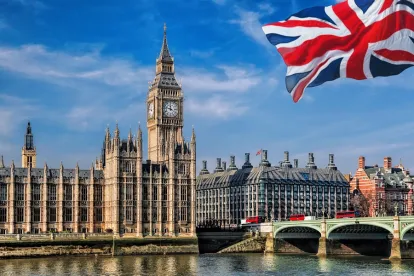Key takeaways
→ The new National Security and Investment Bill expands the UK government’s powers to intercede in acquisitions of UK companies where it determines there is a potential national security threat.
→ The Bill creates a new government agency, the Investment Security Unit (ISU) to oversee foreign direct investment review, removing the power from the competition/antitrust regulator, the CMA.
→ Regulators will be able to “call in” transactions that were not notified but that the Secretary of State determines may pose a national security risk.
→ A mandatory notification will be introduced for certain sectors, including penalties for failure to notify, but the details of those requirements have not been completed.
Overview
On November 11, 2020, the UK government proposed a much anticipated National Security and Investment Bill (the Bill or proposed Regulation) before Parliament.
The Bill is the result of a series of government papers and legal reforms, all of which facilitated government intervention in transactions related to sensitive sectors or national functions, such as military manufacturing or advanced technologies, as well as the hyper-relevant UK-government capacity to address a public health emergency.
Proposed Changes to the screening of foreign direct investments in the UK
If passed, the Bill would introduce for the first time a distinct mechanism and standalone powers for review of foreign direct investments in the Unitedd Kingdom. The Bill would replace the existing public-interest merger control regime when national security interests are concerned (which we described here). Unlike the current mechanisms under the Enterprise Act 2002, the Bill will create a legal framework for FDI review separate from merger control.
Below are some of the key provisions contained in the Bill
The Scope
First, the proposed review mechanism would apply to investors from any country, with no minimum target turnover or market share thresholds to be met.
-
Acquisitions of assets and intellectual property as well as of minority shareholdings (except where the shareholding is less than 15% and does not give rise to “material influence over the policy of the entity”) would be caught by the text of the proposed Regulation.
-
The revenue and share of supply thresholds under the Enterprise Act 2002 will cease to apply and the UK Secretary of State will be able to intervene in any transaction that potentially threatens national security, irrespective of the value of the transaction foreseen. According to UK government’s statement of policy intent, the Secretary of State will consider on a case-by-case basis the risk to national security based on whether the transaction could enable:
-
Disruptive or destructive actions: the ability to corrupt processes or systems;
-
Espionage: the ability to have unauthorised access to sensitive information; or
-
Inappropriate leverage: the ability to exploit an investment to influence the UK.
The Process
Further, and unlike the current UK merger control or the voluntary notification mechanism proposed in an earlier White Paper, the notification of certain transactions considered most likely to give rise to national security risks will be mandatory. Similar to other existing screening mechanisms, the investor would be responsible for the notification and would face significant penalties for in case of gun jumping (i.e. completing a transaction without clearance).
The mandatory notification would cover many sensitive sectors.[1] These sectors are not yet set in stone, and the list may change before the Bill is passed into law. The Government launched a public consultation on the sectors and activities that would be covered by this mandatory notification requirement. In other sectors, notification will be voluntary.
An investor would notify a new government unit (the Investment Security Unit) from the Department for Business, Energy and Industrial Strategy. The review would be conducted and coordinated by the Investment Security Unit and would likely involve other stakeholders such as the Ministry of Defence.
Once a notification has been made, the Secretary of State would use an assessment period of 30 days to decide to conduct an enhanced review to assess potential national security concerns. The government would then have up to 30 days to conduct this enhanced assessment, which can be extended by a further 45 days.
Retrospective Call-In Power
The Bill also introduces a five-year retrospective “call-in” power allowing for post-completion review of non-notified transactions, applicable to any transaction falling within the scope of the new mechanism which is completed from the date of publication of the bill. In concrete terms, the Secretary of State would be able to call in a trigger event that has happen up to six months after the Secretary of State became aware of it, so long as it is done within five years of the trigger event occurring.
We note a few items with regard to the timeline of this call-in power:
-
The Secretary of State may notissue a call-in notice with regards to transactions that took place prior to the Bill’s introduction to Parliament, e. November 11, 2020.
-
With respect to trigger events occurring between November 12, 2020, and the day before the Bill is enacted, a call-in notice may not be given more than six months after the date on which the Bill is enacted if the Secretary of State was aware of the trigger event before the enactment of the Bill.
-
With regards to trigger events occurring after the Bill becomes law, a call-in notice may not be given more than six months after the Secretary of State became aware of the relevant trigger event and may not be given more than five years after the date on which the Bill is enacted.
The Penalties
Proposed penalties for non-compliance with the new mechanism are the following:
-
Fines of up to 5% of worldwide turnover or £10 million (whichever is the greater) and/or imprisonment of up to 5 years; and
-
Transactions covered by the mandatory notification requirement which proceed without obtaining clearance will be legally void.
In its impact assessment published along with the proposed Bill, the UK government announced that it anticipates 1,000-1,830 notifications per year under its revised estimates, of which 70-95 would be called in for detailed national security assessment and around 10 would result in remedies.
The Take Away: Getting ready to notify
While the current text of the Bill will still need to be scrutinized and debated in Parliament before it passes into law, it is already clear that the new mechanism will provide for a very different approach to screening national security and foreign investment in the UK than has existed to date. There is no doubt that the new mechanism will result in stricter scrutiny from the authorities, nor that a significant amount of transactions would undergo screening from the Department for Business, Energy, and Industrial Strategy. We will closely monitor changes in UK legislation here.
FOOTNOTES
[1] These sensitive sectors include: Civil nuclear, Communications, Data infrastructure, Defense, Energy, Transport, Artificial intelligence, Autonomous robotics, Computing hardware, Cryptographic authentication, Advanced materials, Quantum technologies, Engineering biology, Critical suppliers to the government, Critical suppliers to emergency services, Military or dual-use technologies, Satellite and space technologies.




 />i
/>i

